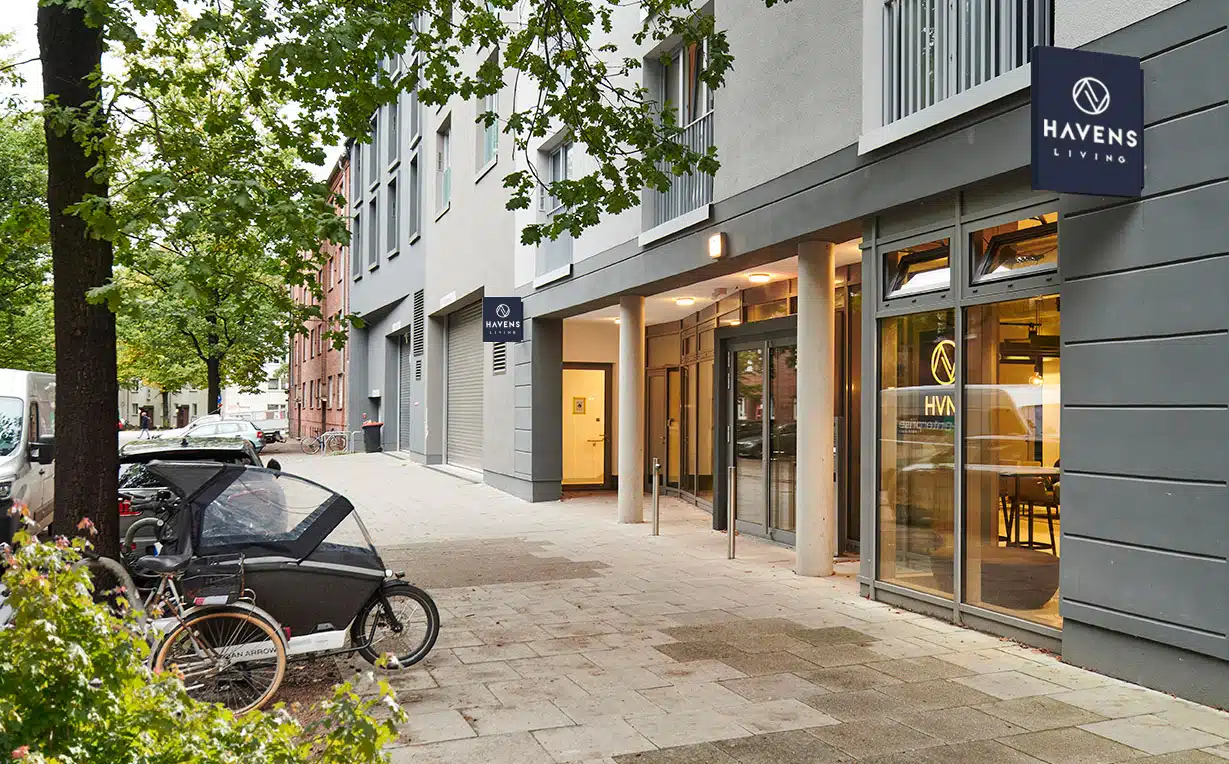Headed for Hamburg? Here's how to streamline your move to Germany's second largest city
Hamburg is a potent mix of 'punky' and progress - no wonder it's one of Germany's most exciting cities.

Furthermore, Hamburg is a city that attracts people from all over the world. Iconic German brands like Edeka, Otto and Tom Tailor have their base in the city, while the city's massive port - the fourth largest in Europe - makes it a world centre for logistics.
If you're lucky enough to have found yourself a job in Hamburg, you may be wondering how you will go about finding yourself a place to live and get settled in Germany's second-largest city. No need to fear; together with the urban living concept, HAVENS LIVING by International Campus, we're laying out the most essential steps you'll have to take once in Hamburg - and one great life hack.
Step One - Get registered
No matter who you are and where you plan on living in Hamburg, you must register with local authorities within two weeks of arrival. This is done at the local citizen's service centre or Bürgeramt. You can find out where they are, and make an appointment online via the city's service portal here.
To register, you'll need your passport and associated ID, as well as completed forms from the owner of the property that you're staying in. Once you've done this, you'll receive a registration certificate called an Anmeldebestätigung that acts as your registration record.
This document proves that you legally reside in Germany, and it's also required when you try to set up things like your bank account, utilities and other critical everyday services.
Step Two - Open a bank account
After getting registered at your Hamburg address, you must ensure you have a German bank account. Again, having a German bank account with a German IBAN account number is essential for many aspects of everyday life - from timely payment of your salary to accessing vital services.
Organising a German bank account used to be more complex, as many banks required proof of residence before opening an account for you. However, easing financial regulations has meant that online banks such as Bunq, Revolut or N26 allow you to set up an account before arrival. Once in Hamburg, you'll have a set amount of time - usually three months - to provide a copy of your Anmeldebestätigung.
Step Three - Take care of your utilities
Once you've got registration and your bank account sorted out, you'll need to find a place to live. This is a massive topic, and The Local has often written about securing a rental property in Germany.
Let's say you've found a place for our purposes. Next, you have to sort out your utilities - gas and power, as well as the internet. Hamburg is served by several big energy providers such as E.ON Hanse, Valtenfall and Hamburger Energie, as well as manysmaller outfits promising that their energy is sustainable or customer service is very international-friendly. There's also a dizzying variety of internet packages available.
What you have to know is the length of any prospective contract you're offered and how you can shift your tariff or cancel your service if you decide to move.
German contract law is notoriously complex and unforgiving. This means you should have someone with fluent German read through your contract and explain the terms and conditions so you don't cost yourself extra money.
 HAVENS LIVING'S Hamburg Altona is centrally placed with excellent links to entertainment, public transport and the city's beautiful sights. Photo: HAVENS LIVING
HAVENS LIVING'S Hamburg Altona is centrally placed with excellent links to entertainment, public transport and the city's beautiful sights. Photo: HAVENS LIVINGStep Four - Learn how to get around and start making friends!
Once you're settled into a new apartment, getting to know your new home is time. Hamburg is easily explored using the city's public transport system. Still, it's also essential to research and find the kind of ticket that makes sense to you.
You may use enough in your daily commute to justify a public transport subscription. Many of these subscriptions come with additional benefits, like subsidised entrance to museums or attractions, so it's worth exploring the idea.
In a big city like Hamburg, you'll also find it reasonably easy to meet people in a similar situation to yours. There are also several websites and Facebook communities for international students and workers in Hamburg to answer your questions - don't discount how useful these can be in helping you find your feet.
Your lifehack to settling in a new German city
Speaking of finding your feet, if you're about to start a new life in Hamburg, apartment solutions such as HAVENS LIVING can help you avoid many of the challenges of getting started in a big city.
With HAVENS LIVING, not only can you use their Hamburg Altona property to help you get registered, but they take care of your utilities - all-inclusive - and act as your concierge and guide, giving you the kind of insider advice and knowledge that only locals can provide.
Need an English-speaking doctor? They'll help you make an appointment. Are you looking for salsa dancing? They'll know the best places.
The Hamburg Altona location offers a range of living options, each stylishly fully furnished with everything you'll need to be comfortable and relaxed. With each apartment option, there's flexible leasing, meaning whatever your situation is, there's something that suits you.
HAVENS LIVING also provides a gym and other communal spaces where there's always something happening, helping make new friends that much easier. There are weekly events and exciting opportunities to make new friends and learn more about the city together, forging lasting connections in turn, It's your base to explore and build a life in a new city..
Getting settled in Hamburg can be challenging, but it doesn't have to be. With a little bit of research - and someone on your side like HAVENS LIVING- it can be the start of something truly exciting.
This content was paid for by an advertiser and produced by The Local's Creative Studio.

Join the conversation in our comments section below. Share your own views and experience and if you have a question or suggestion for our journalists then email us at [email protected].
Please keep comments civil, constructive and on topic – and make sure to read our terms of use before getting involved.
Please log in here to leave a comment.